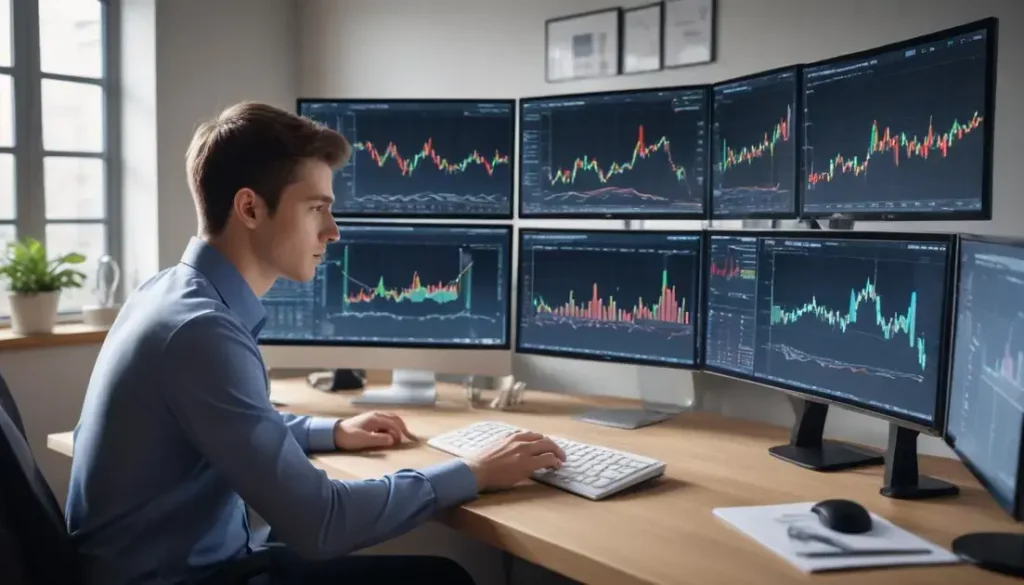Leitura: 8 minutos Looking for a no-cost edge to enter the trading world? Access to top-tier market knowledge is no longer reserved for the privileged few. Today, anyone in the US can leverage high-quality, free courses in trading to sharpen decision-making, boost risk management, and chase market share advantages—all without investing a single cent. This article breaks down current industry movements, hidden risks, and future projections. Prepare to turn free resources into professional leverage.
Why Free Trading Courses Matter
Accessible trading education has dramatically reshaped the competitive landscape. Previously, institutional knowledge was gatekept, creating entry barriers for aspiring traders. Now, free trading courses open the doors for anyone—regardless of their background.
- Democratizing finance: More people are empowered to participate, driving greater liquidity and innovation.
- Leveling the playing field: Retail traders access the same strategies as professionals, reducing traditional knowledge asymmetries.
- Supporting lifelong learning: Rapid market shifts demand continual upskilling, and free resources accelerate knowledge cycles.
In practice, this means individuals can develop an agile response to market changes at zero upfront cost. How might free knowledge change your competitive strategy?
Evaluating Course Quality and Limitations
Not all free content delivers equal value. Many courses offer foundational skills—understanding charts, basic order types, and introductions to risk management—but often lack up-to-date market insights or advanced techniques.
- Beware outdated information: Markets evolve, and yesterday’s advice can backfire today.
- Check source credibility: Established financial institutions and accredited educators offer more reliable training.
- Assess depth: Courses with quizzes, simulations, and current case studies drive deeper learning than mere video lectures.
The recado for those seeking a real advantage: Vet your material as you would any investment. Are you demanding professional standards from your free resources?
Key Benefits: Building Market Intelligence
Successful trading is driven by intelligence, not luck. Quality free courses teach vital skills for market analysis, portfolio diversification, and risk management—essentials for staying ahead in volatile environments.
- Data-driven decision-making: Learn to interpret indicators, economic reports, and technical signals.
- Sharpened risk controls: Avoid emotional trading by using structured frameworks to manage exposure.
- Real-time adaptability: Develop agile responses to market shocks with simulation-based learning.
In practice, these skills help you protect capital and capture upside in dynamic conditions. How well are you using free education to upgrade your intelligence of market movements?
Risks: Overconfidence and Misinformation
Not all that glitters is gold. Accessibility comes with potential downsides. Free courses can create a false sense of mastery, leading to reckless trades. Worse, some materials may push untested strategies or hidden upsell agendas.
- Overconfidence: Superficial knowledge often translates into misplaced risk-taking.
- Misinformation: Unregulated courses may teach outdated or speculative practices.
- Hidden sales traps: Some platforms push learners toward costly “premium” communities rather than real competency.
For risk management, the takeaway is clear: Cross-reference learning, validate instructors’ backgrounds, and never substitute free content for verified expertise. Are you critically assessing the reliability of your learning sources?
The Future: AI, Regulation, and Hybrid Learning
Tomorrow’s leaders will master change by leveraging the next generation of free trading education.
- AI-driven customization: Algorithms will personalize learning, suggest strategy adjustments, and flag cognitive biases in real time.
- Stricter regulatory oversight: As retail participation surges, US regulators are likely to set new standards for course quality and transparency.
- Hybrid models: Expect a blend of free, open-content modules and paid certifications, letting learners sample before committing.
The implication: Those who adopt adaptive learning and stay abreast of regulatory shifts will secure lasting market share. Are you prepared to capitalize on the next wave of trading education?
